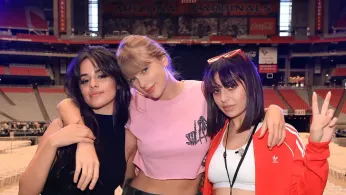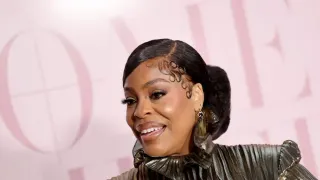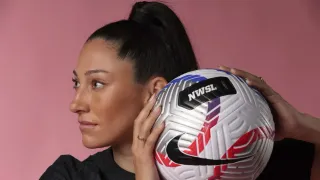
3 hours ago
Taylor Swift and Charli XCX: Anatomy of a Pop Feud
READ TIME: 3 MIN.
In the world of pop music, rivalries often simmer beneath the surface, only to erupt spectacularly when art imitates life. The recent feud between Taylor Swift and Charli XCX is a striking example, ignited by pointed lyrics and magnified by the scrutiny of fans and media alike. What began as mutual respect evolved into a high-profile standoff, reflecting broader themes of artistic independence, loyalty, and public persona.
Taylor Swift and Charli XCX’s relationship dates back over a decade, with their first public meeting documented at the 2014 iHeartRadio Jingle Ball in New York. They were photographed together, signaling a friendly connection at a time when both artists were ascending in their respective careers .
Charli XCX’s profile rose further when she joined Taylor Swift as an opening act on the Reputation Stadium Tour. This collaboration introduced Charli to a broader audience, and at the time, both artists spoke positively about each other in interviews, with Charli expressing gratitude for the experience .
However, by 2024, subtle signs of strain surfaced. Charli’s critically acclaimed album “Brat” featured the track “Sympathy Is a Knife”—a song many listeners interpreted as a veiled reference to Taylor Swift, especially given its themes of betrayal and severed ties . The speculation intensified following a New York Magazine photo shoot in which Charli posed with a severed, bloody hand adorned with a friendship bracelet—an accessory strongly associated with Swift’s Eras Tour—fueling rumors that the song was a deliberate diss .
The feud reached its peak in October 2025 with the release of Taylor Swift’s album “The Life of a Showgirl.” The track “Actually Romantic” drew immediate attention for its pointed lyrics, widely interpreted as a direct response to Charli XCX’s earlier song. Critics and fans alike pored over the words, debating their intended target and the implications for both artists’ reputations .
While neither artist explicitly confirmed the songs were about one another, the circumstantial evidence was hard to ignore. Taylor Swift’s refusal to address the rumors in interviews—reportedly instructing press to avoid questions about “Actually Romantic”—added fuel to the fire, as did Charli XCX’s cryptic social media activity, including a video of her in the studio teasing new music that some interpreted as another rebuttal .
The feud spilled onto social media, where #TeamTaylor and #TeamCharli trended for days. Both artists faced waves of support and criticism, with some Swifties accusing Charli of ingratitude for her earlier tour slot, and Charli’s fans defending her right to artistic autonomy and self-expression .
The Swift-Charli feud is more than a clash of egos; it highlights the complexities of fandom culture, media narratives, and LGBTQ+ visibility in pop. Both artists have significant LGBTQ+ followings, and their music frequently resonates across queer communities for its themes of self-empowerment and authenticity.
Taylor Swift has spoken publicly about allyship and LGBTQ+ inclusion, notably with her “You Need To Calm Down” video and public support for the Equality Act . Charli XCX, meanwhile, is celebrated for her outspoken advocacy and collaborations within queer music scenes, and her “Brat” era was widely embraced by LGBTQ+ fans for its unapologetic stance and experimental sound .
The feud, therefore, has not only polarized mainstream pop audiences but also sparked nuanced debates within LGBTQ+ spaces about loyalty, representation, and the boundaries of artistic expression. Social media commentary reflects this diversity of opinion, with some queer fans expressing disappointment at the perceived pettiness, while others frame the conflict as a necessary confrontation between two different visions of pop stardom .
As of mid-October 2025, the feud shows no sign of abating. Charli XCX’s hints at new music—possibly responding to Swift—continue to stoke speculation. Taylor Swift, for her part, remains silent on the controversy, focusing public appearances on her album’s broader themes rather than the drama .
Industry observers note that such high-profile disputes can both challenge and strengthen the artists involved. For fans, the feud is a reminder of the personal stakes embedded in pop music and the power of lyrics to shape public perception. For the broader LGBTQ+ community, it prompts ongoing reflection about allyship, authenticity, and the evolving landscape of pop culture.
While the Taylor Swift and Charli XCX feud may ultimately resolve—either through reconciliation or mutual indifference—its impact on pop culture and LGBTQ+ discourse is undeniable. Both artists have used their platforms to challenge norms and expand their creative horizons, and their current conflict, however fraught, is a testament to the passions and complexities that define modern music.






